Managing your mental health can be a difficult balancing act: Between friendships, romance, work and family, it’s easy for our busy lives to start to take a toll on our brains. It turns out that decking out your home with certain plants can help beat the blues and keep you happy and healthy. There’s been ongoing research that suggests that indoor plants not only purify the air, but have calming effects on your mood, stress levels and blood pressure. Here are some of our favourite plants to add a splash of colour and good cheer to your home.
Published December 16, 2019, Updated January 8, 2022

Aloe Vera
Aloe vera isn’t just great for healing surface wounds and skin ailments, it purifies the air of irritants that can impact our respiratory system and trigger feelings of stress and unease. The aloe vera plant is also famously hardy and won’t fall victim to plant enthusiasts who aren’t blessed with a green thumb.
Related: Weird Plant Tips for Your Home and Garden That Actually Work
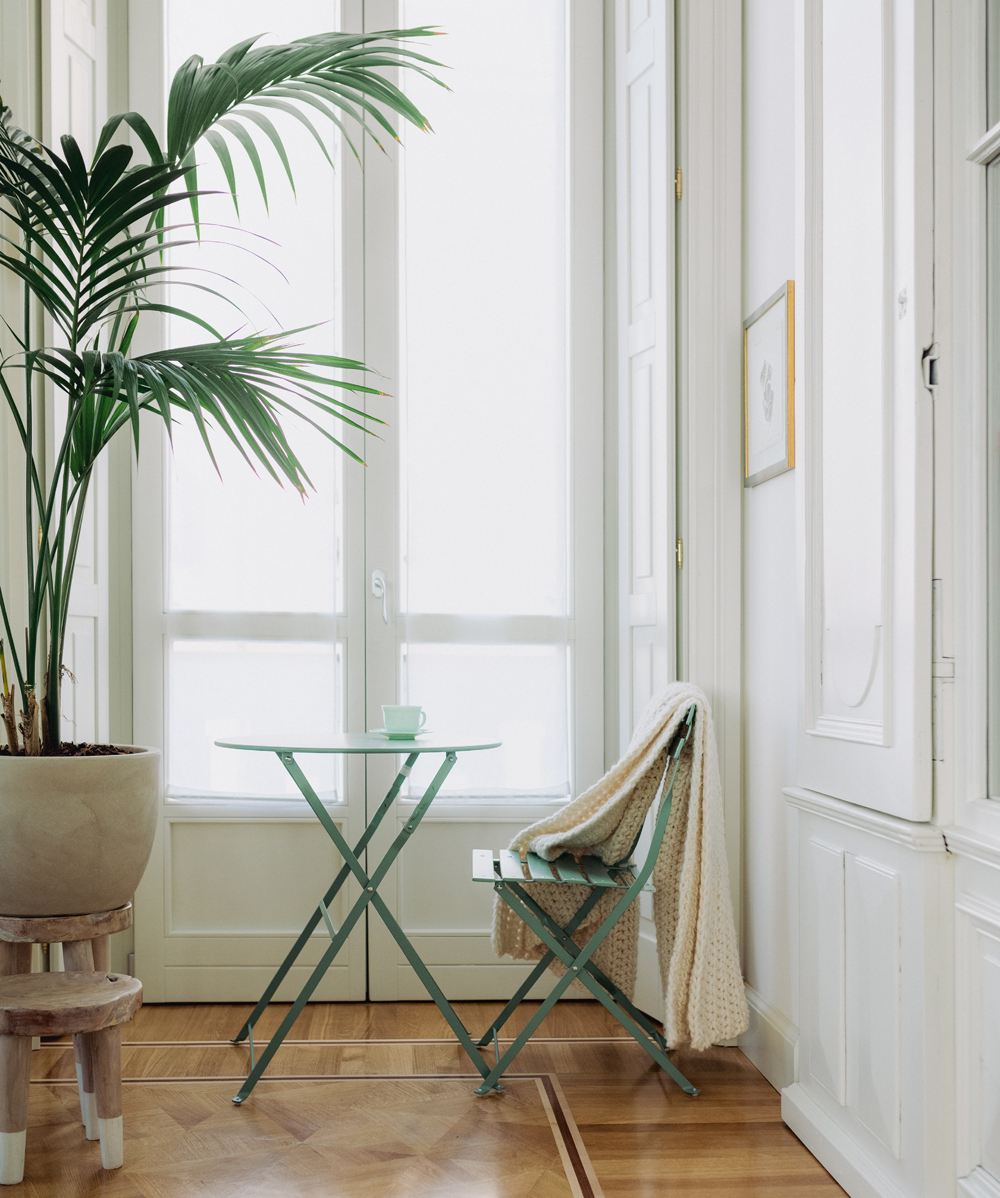
Bamboo Palm
Bamboo palm can add a taste of the tropics to your home. It’s great at flushing pollutants from the air, which goes a long way to helping us breathe better and soothe anxiety. It’s also a natural humidifier and thrives in the shade with little attention from its owner.
Related: Winter Home Decor Ideas, According to Your Zodiac Sign
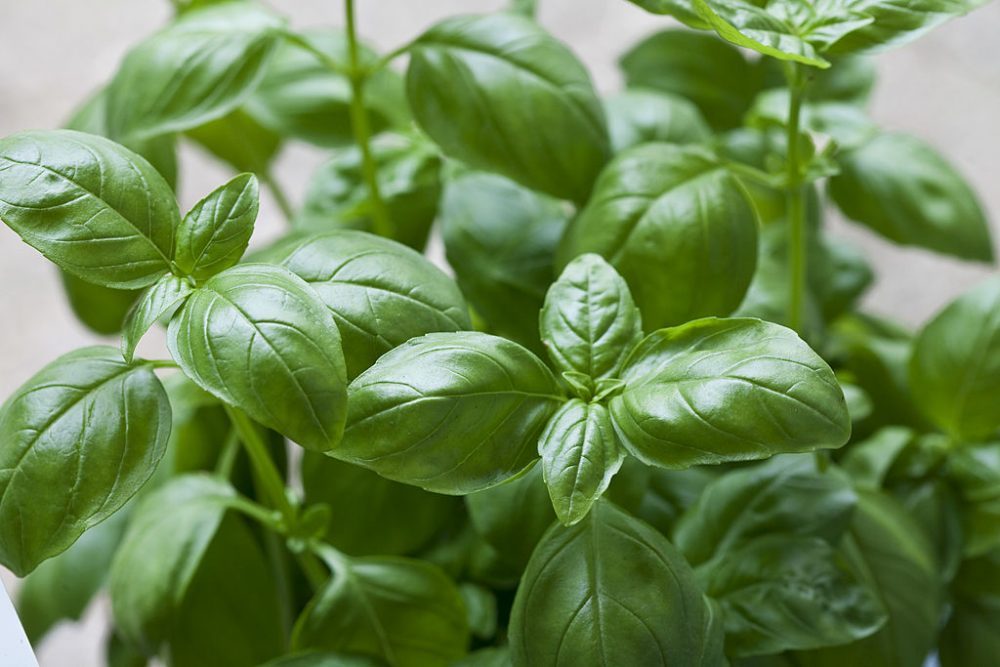
Basil
is a plant that has benefits beyond the plate: it is rich with the compound linalool, which gives it its woodsy scent. The plant also helps pump oxygen into the air for a staggering 20 hours each day, helping purify the air which can positively impact your blood pressure, mood and stress levels.
Related: 20 Plants That Are Safe for Children, Cats and Dogs
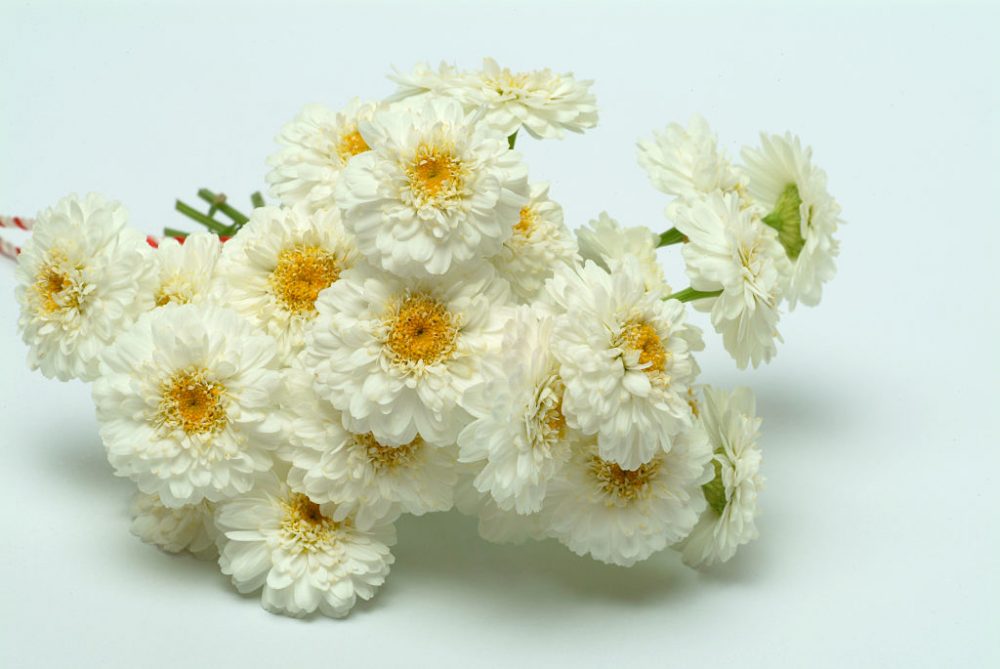
Chamomile
is known for its calming effects as a bedtime drink. The gentle floral smell also does wonders for mood and is a great houseplant for if you’re feeling tense or stressed.
Related: The Best Plant for You, According to Your Zodiac Sign
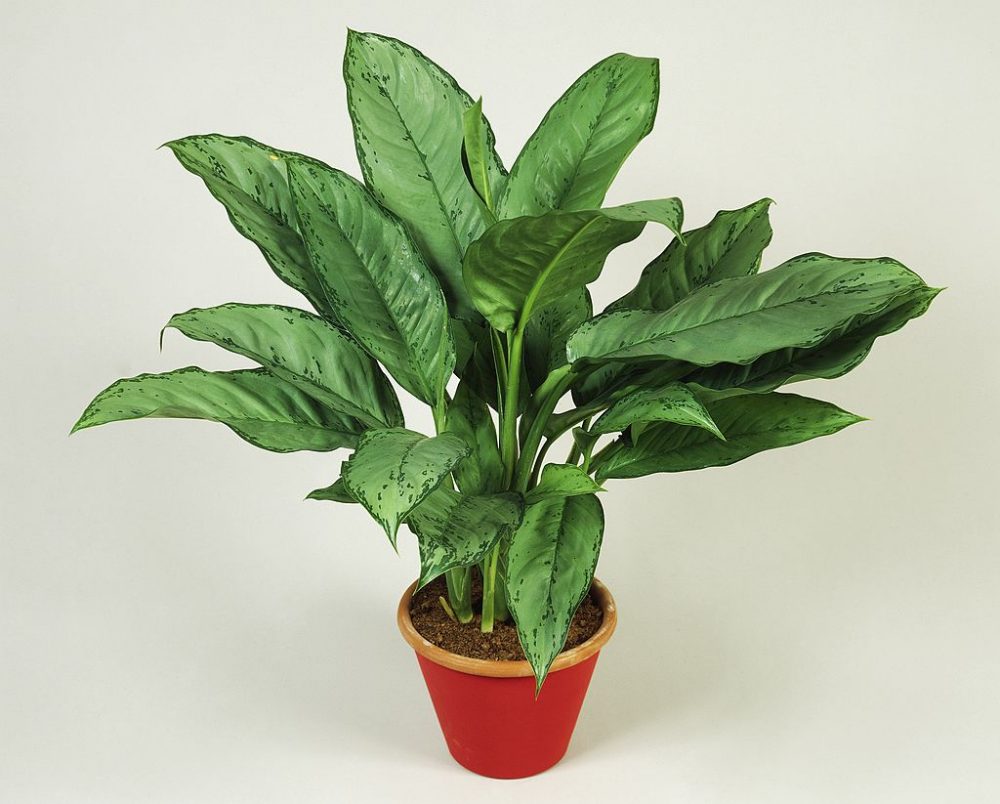
Chinese Evergreen
The Chinese evergreen isn’t one to wilt in low light. The plant can survive the novice gardener and is a perfect visual pick me up. Even in gloomier months, it looks stunning inside. This plant would be great decor in any living room that can use a splash of green. It also filters toxins from the air and emits oxygen, which can bolster productivity and boost your sense of well-being.
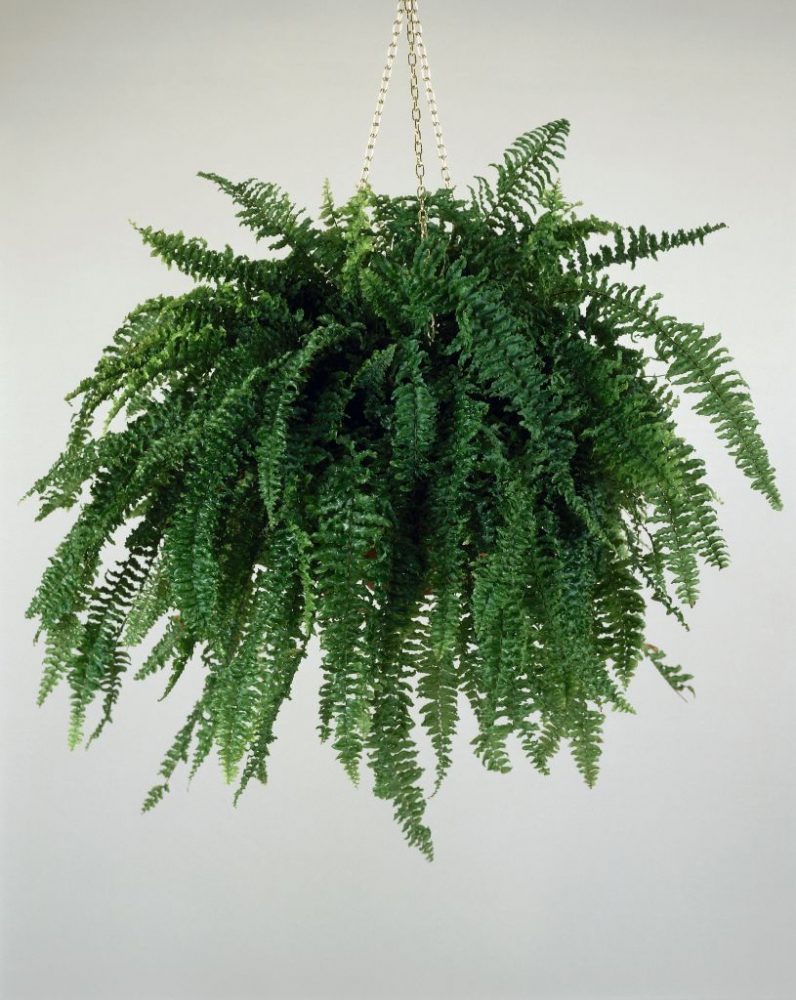
Fern
Air quality can be a challenge that impacts our mental health. The fern is on par with a good humidifier and helps relieve stress by putting moisture back into the air and improving the breathability of the air in our homes. It’s also a gorgeous plant and would brighten any room in a hanging basket or a decorative pot.
Related: 15 House Plants That Help Reduce Humidity in the Bathroom
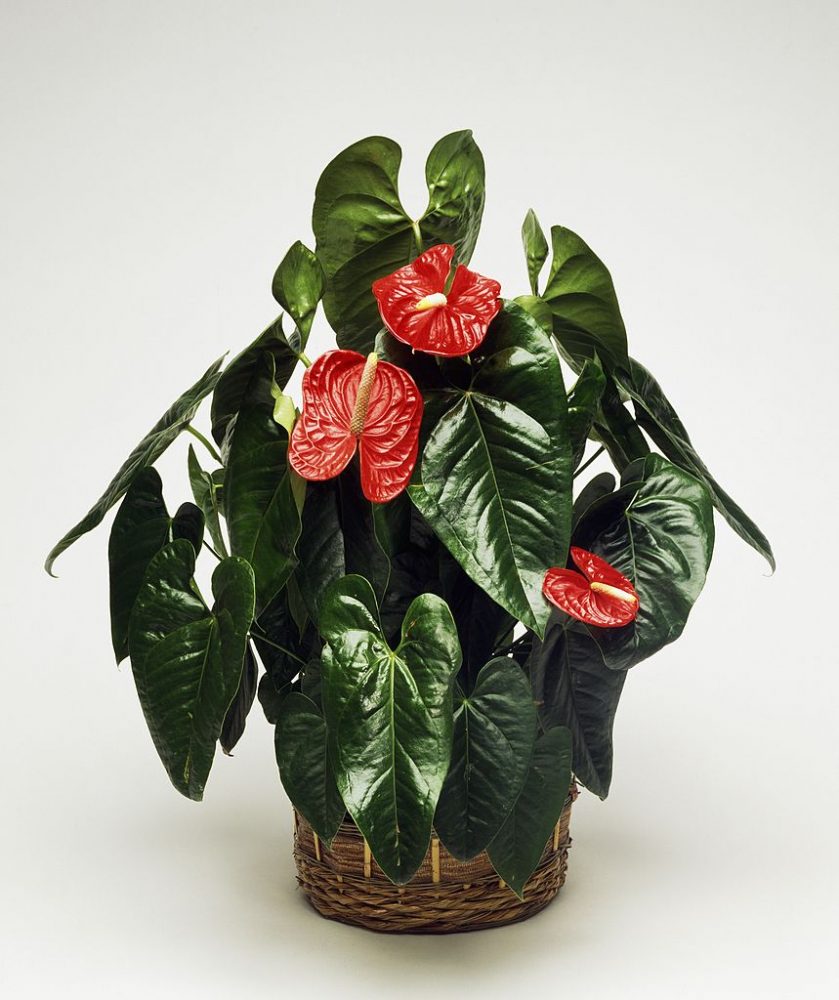
Flamingo Lily
The resplendent flamingo lily is a perennial plant that produces lush, beautiful flowers and large, glossy leaves. It’s not a houseplant for a novice enthusiast and needs a high touch approach to keep healthy. Attentiveness and patience with the flamingo lily are rewarded with gorgeous blooms. This plant purifies our home of airborne toxins like formaldehyde, ammonia, toluene and xylene, which can impact both our physical and mental health. The flamingo lily requires considerable humidity, so it is a great addition to a houseplant ecosystem with plants that add moisture to the air.
Related: These Are the 20 Most High-Maintenance Plants – Can You Handle Them?
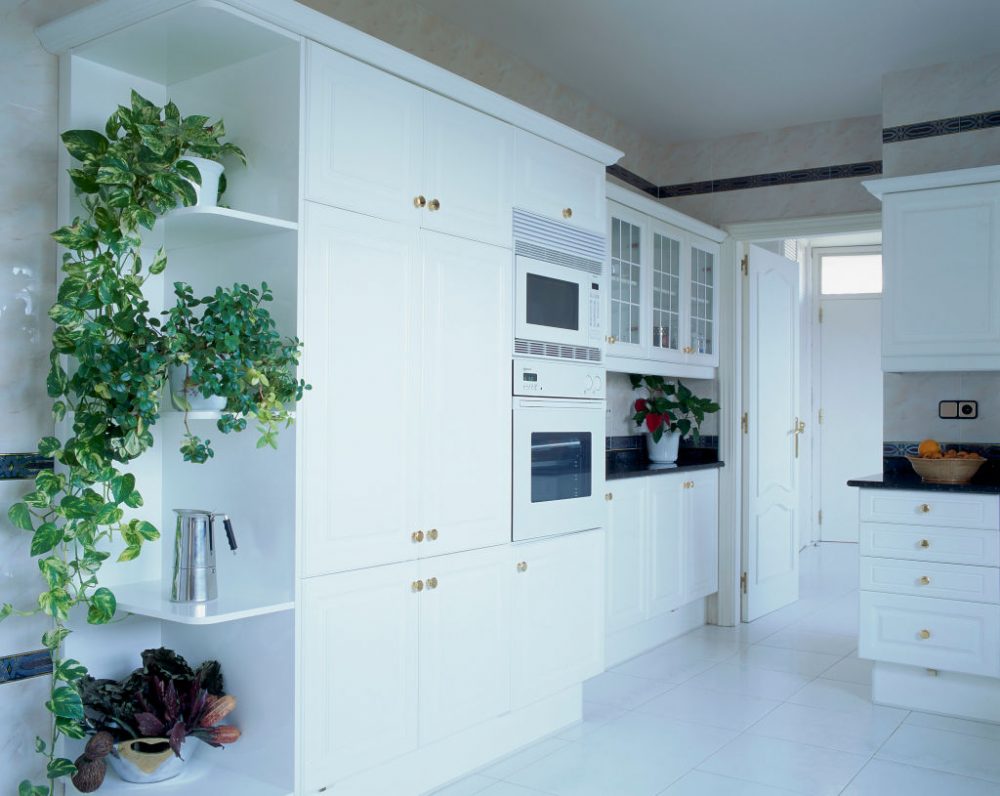
English Ivy
This houseplant is a perfect candidate for those who love the look of vines and leaves spilling artfully from hanging baskets. The English ivy is not only a looker: the plant is a hard worker and divests homes of up to 94% of its mould in as little as 12 hours. Exposure to mould can increase symptoms of insomnia, irritability and depression.
Related: 15 Plant-Filled Living Rooms for Serious Decor Inspiration
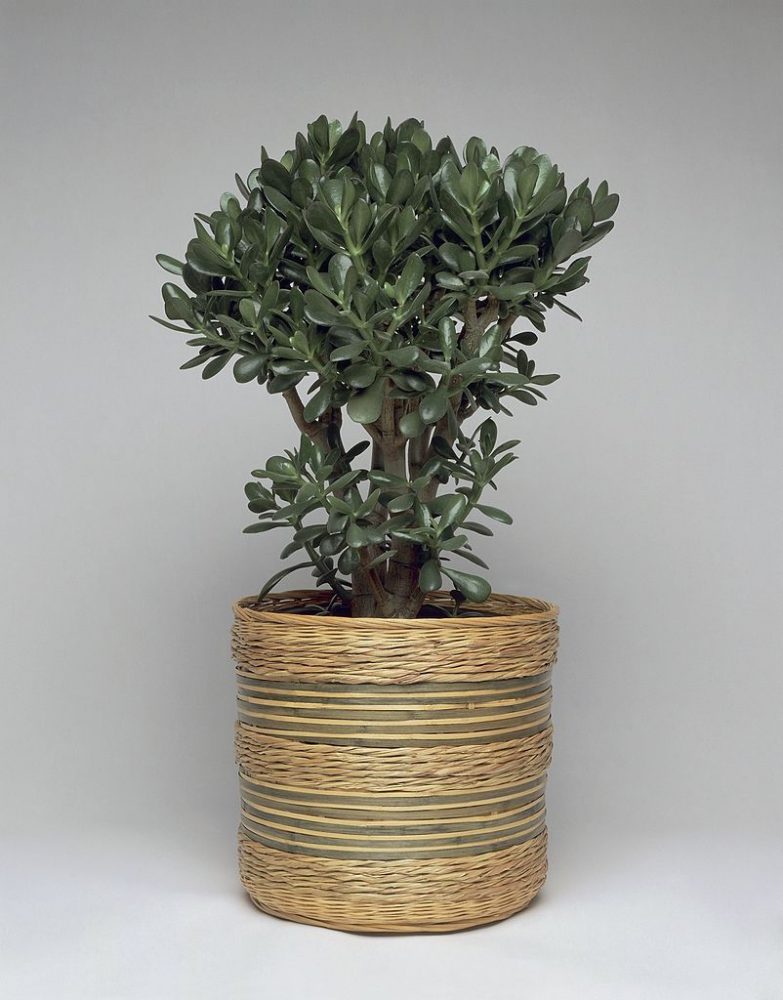
Jade Plant
The jade plant takes after bonsai in appearance: it almost looks like a small tree. Its dense shrubs can bring more of an outdoorsy feel to your cosy home. This plant also has a talent for purging the air of indoor pollutants from paint and cleaning products, which contain chemicals that can make us feel foggy, stressed and unwell. The plant needs a bit more of an intensive watering schedule than other plants on this list and will grow slowly, but surely over time. Make sure you save the clippings from your pruning: offshoots can grow on their own and make great gifts for loved ones.
Related: 20 Tips to Get Your Christmas Cactus to Bloom During the Holidays
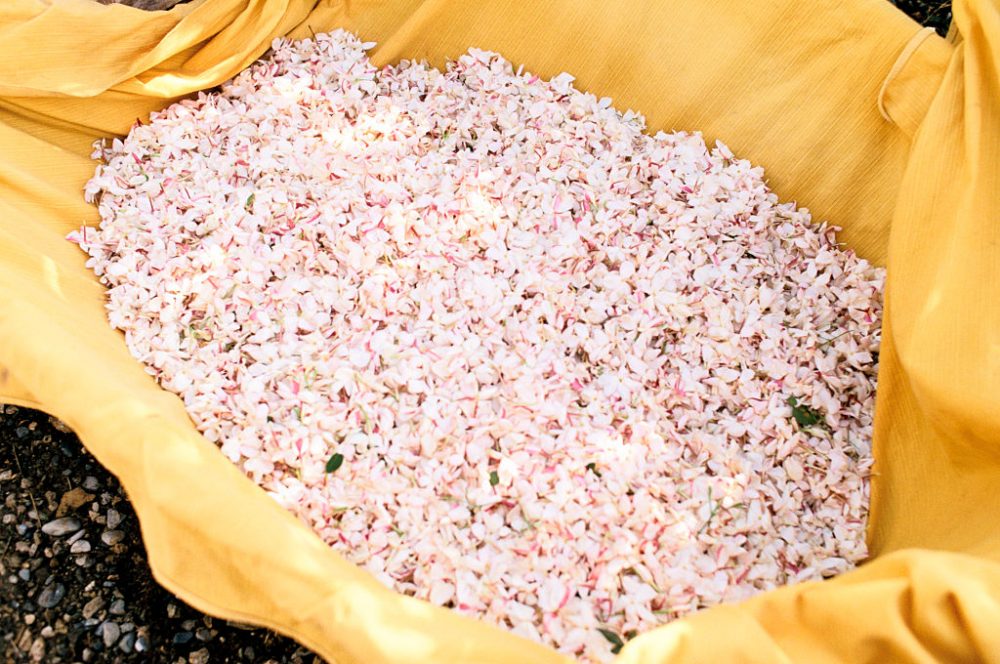
Jasmine
Jasmine’s gorgeous fragrance doesn’t have to be reserved for the flowers you see outside: it can also thrive as an indoor houseplant. Its floral scent has a sedating effect and is a great option for those struggling with anxiety, insomnia or poor sleep quality. This is another plant that is great for a nightstand or a windowsill in your bedroom.
Related: The 20 Best Bedroom Plants to Help You Get a Better Sleep
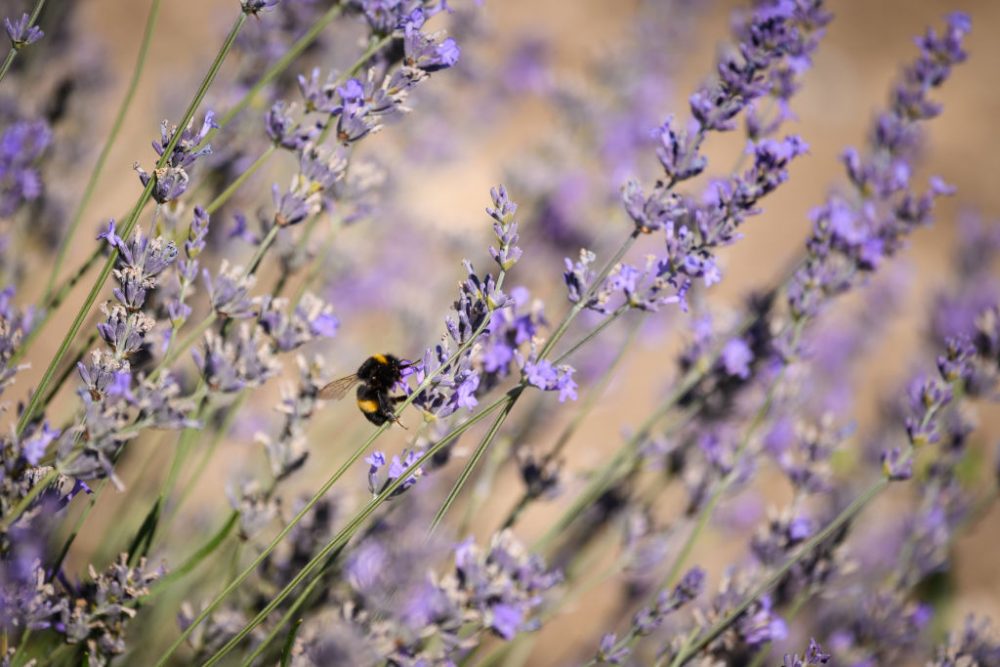
Lavender
Lavender’s delicate and effusive scent is a favourite for aromatherapists and not without reason: it’s well known for alleviating stress and is commonly prescribed by physicians for patients grappling with anxiety. You can try leaving sprigs of lavender in a decorative vase by your bedside or keeping a small potted lavender plant in your bathroom. The soothing smell should flood the bathroom when it interacts with the steam from your shower.
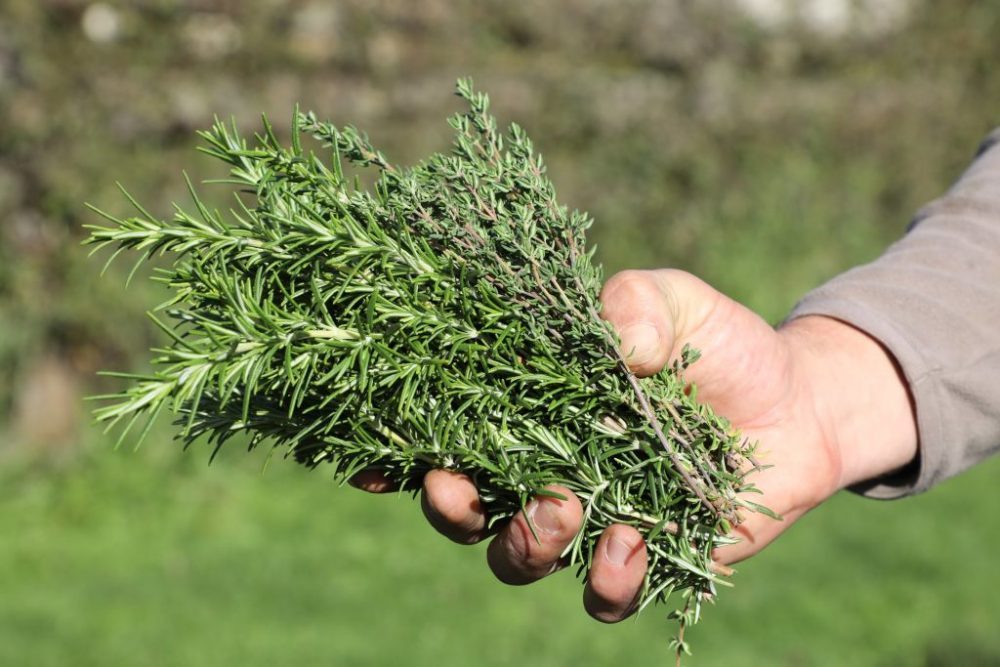
Rosemary
is great in a savoury herb blend and also does wonders for purifying the air in your house. Overall air quality has a significant impact on mood, focus, productivity and stress. You can opt for small herb pots for your kitchen so that you’ll have more seasoning on hand for all your soups and stews or you can go the more lavish route with a rosemary bush that grows in a spiralling corkscrew pattern.
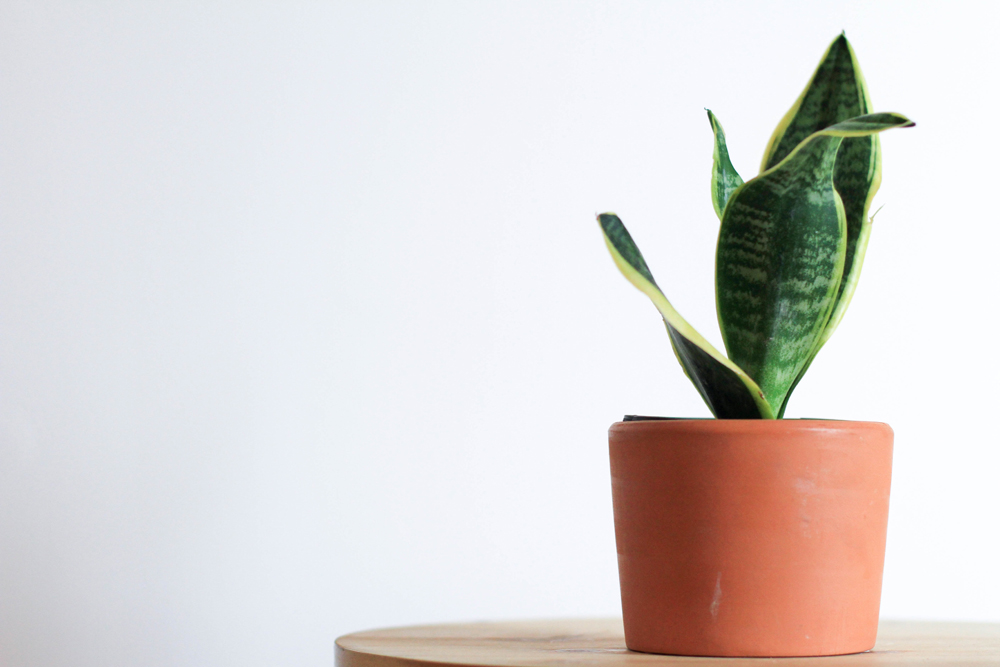
Snake Plant
Snake plants are beautiful, verdant plants that grow quite quickly. If you’re tight for space, this plant should still good be a good fit, as the plant stalks grow vertically, which can help you conserve floor space. The snake plant is a front runner for houseplants that can scrub the air, ridding your home of airborne toxins that impact your sleep, mood and energy levels.
Related: 20 Hacks to Keep Your Houseplants Alive During the Winter
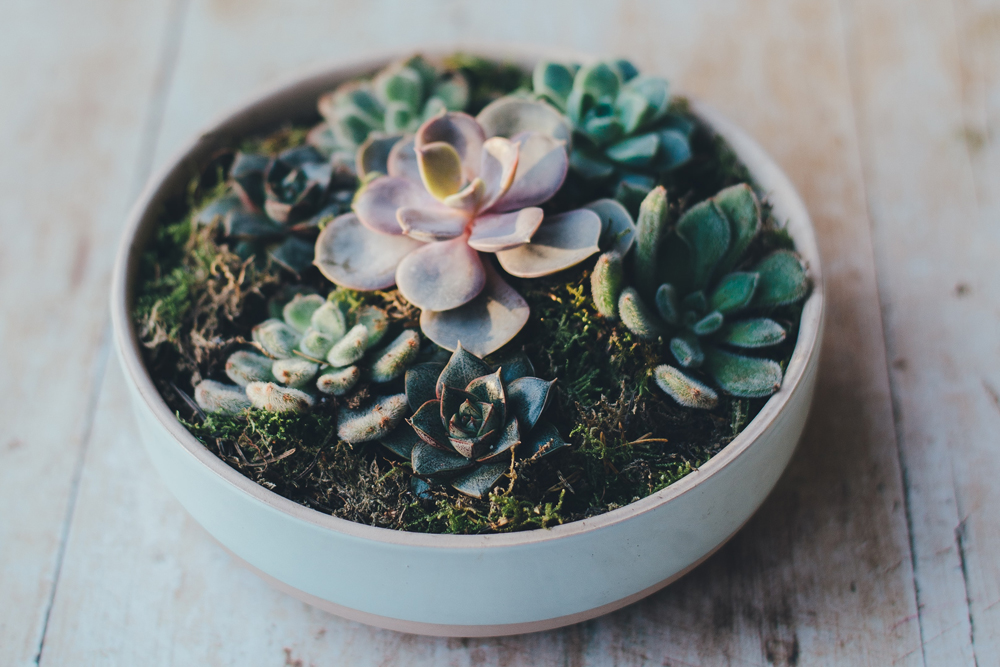
Succulents
These small potted plants are an aesthete’s dream and can add a wide range of colour and texture to your home. They also release oxygen throughout the night, which can bolter sleep quality, leading to elevated mood and decreased stress and tension. These variegated plants are resilient and don’t need a green thumb to bring out their best.
Related: 21 Easy-to-Care-for Indoor Plants That Go Beyond Succulents
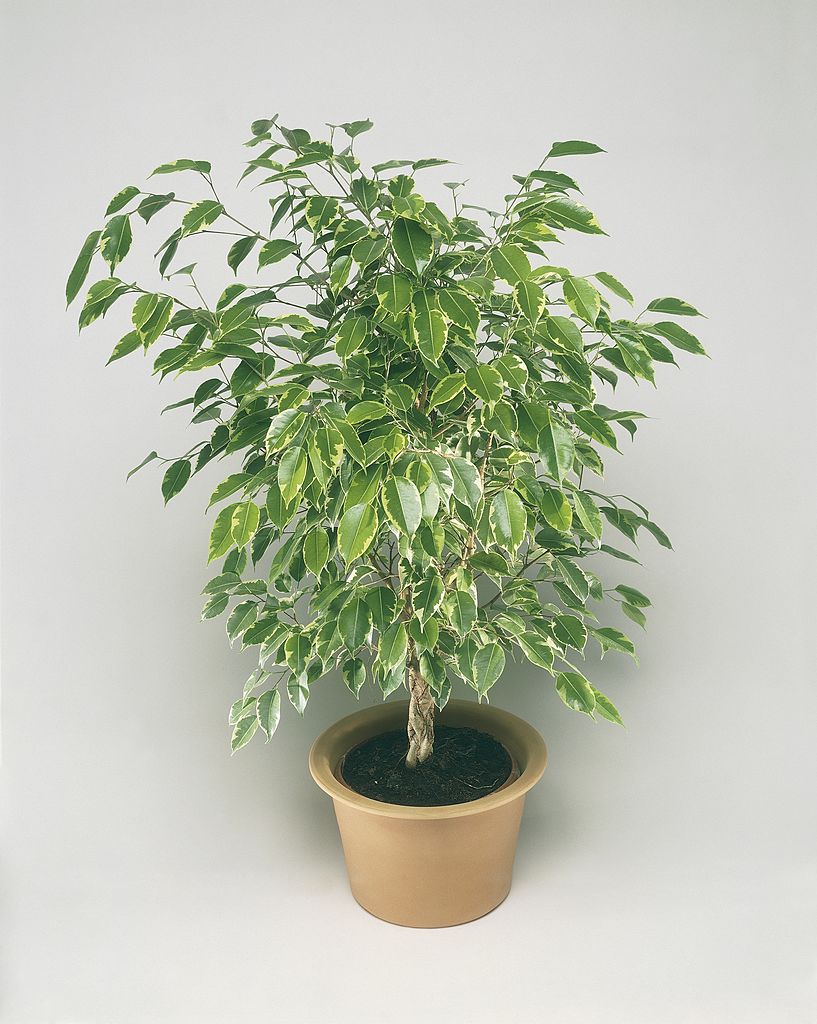
Weeping Fig
The weeping fig is another plant that can help with depression by cycling toxins and irritants out of the air. It’s a bit fussy in that it does not like being moved, so choose its initial spot carefully. It does well with indirect sunlight and needs about six hours of sunshine a day to keep its leaves.
Related: 20 Plants That Will Improve the Air Quality in Your Home
HGTV your inbox.
By clicking "SIGN UP” you agree to receive emails from HGTV and accept Corus' Terms of Use and Corus' Privacy Policy.




